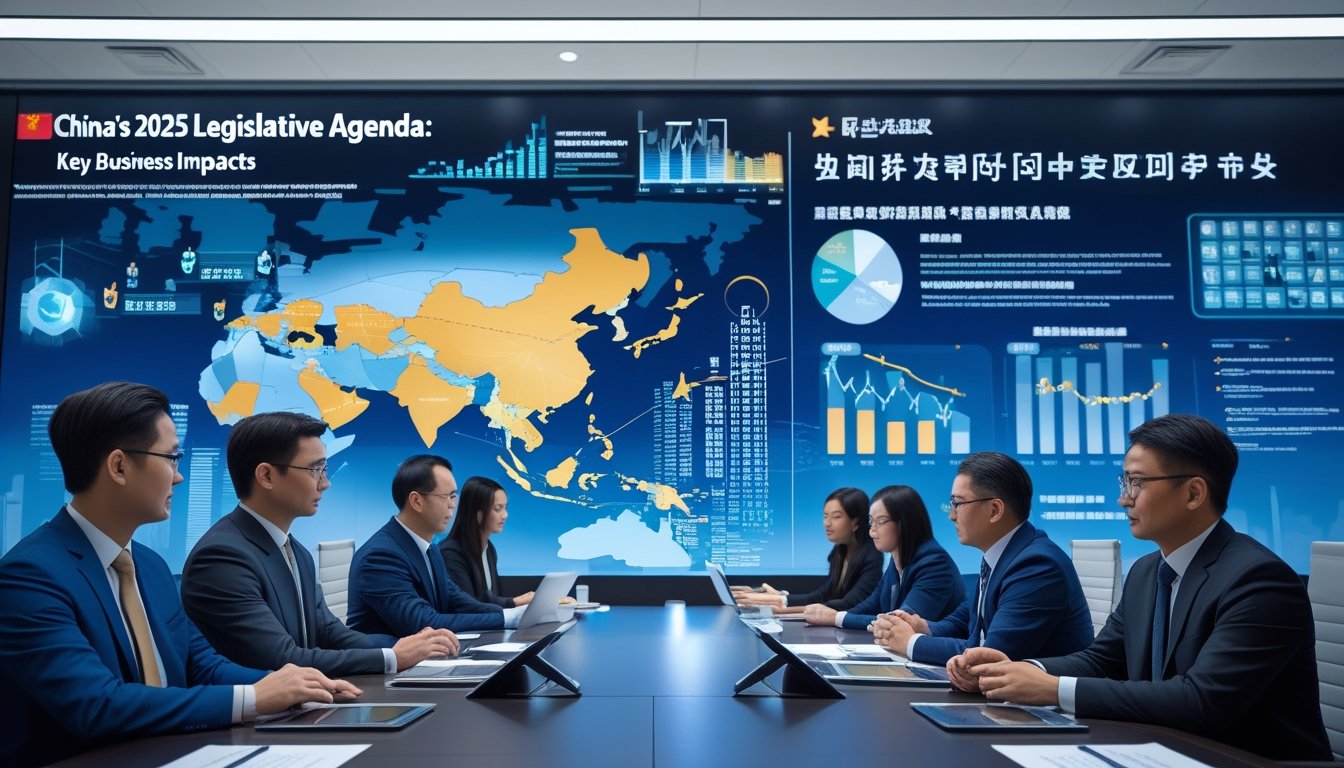Trading with China can be a complex yet rewarding venture. China has trade deals with lots of places like ASEAN, Singapore, and New Zealand, which can be great for companies wanting to grow.
But when it comes to writing up a contract for trade in China, there can be some bumps in the road because of different ways of doing things or legal rules.
It's super important to have a clear and strong contract to keep everything running smoothly and to protect your business. Knowing all about China's trade laws is a big help, whether you're buying, selling, or teaming up with a Chinese company.
Want to learn how to make a contract that works great for trading with China? Read on to find out how.
Overview of China's International Trade Agreements

China has established numerous Free Trade Agreements (FTAs) and remains a key player in international trade.
Among these agreements, the Regional Comprehensive Economic Partnership (RCEP) holds particular significance.
Regional Comprehensive Economic Partnership
The Regional Comprehensive Economic Partnership (RCEP) is one of the largest trade agreements in history.
It includes 15 countries: China, Japan, South Korea, Australia, New Zealand, and the 10 ASEAN nations.
The agreement aims to reduce tariffs, facilitate trade, and strengthen investment among member countries.
RCEP covers a wide range of sectors, including goods, services, and intellectual property.
By eliminating tariffs on over 90% of goods, it makes trade easier and less costly.
Notably, it also incorporates regulations on trade secrets and patents, enhancing protection for intellectual property rights within the region.
Closer Examination of the RCEP's Impact
RCEP significantly impacts international trade and investment, particularly within Asia.
By bringing together major economies, it creates a massive market and streamlines supply chains.
This agreement provides businesses with more opportunities for expansion and collaboration.
One key aspect of RCEP is its ability to attract investment by offering clearer and more consistent trade policies.
This stability can encourage companies to invest in participating countries.
For example, the broader RCEP framework has benefited the China-Republic of Korea (ROK) FTA, allowing smoother trade and investment flows between the two nations.
You should also note that RCEP lowers barriers to entry for small and medium-sized enterprises (SMEs).
By harmonizing standards and reducing bureaucratic hurdles, SMEs can better compete in regional markets.
Ultimately, RCEP enhances economic integration and fosters a more competitive trade environment in Asia.
Specific Free Trade Agreements and Their Provision
This section explores key Free Trade Agreements (FTAs) between China and other entities.
Learn about the China-ASEAN Free Trade Area, the Cross-Strait Economic Partnership, and various bilateral agreements focusing on taxation and intellectual property rights.
China-ASEAN Free Trade Area
The China-ASEAN Free Trade Area (CAFTA) is an agreement aimed at enhancing trade and investment between China and ASEAN countries.
Effective since 2010, CAFTA has reduced tariffs on about 90% of goods traded between the member nations.
Key provisions include tariff elimination, customs procedures, and trade facilitation measures.
The agreement has boosted trade in goods like electronics, machinery, and textiles.
A significant aspect is improved market access, enabling businesses to enter new markets with fewer barriers.
Cross-Strait Economic Partnership
The Cross-Strait Economic Partnership Agreement (CEPA) involves Mainland China and Taiwan.
This free trade agreement focuses on reducing trade barriers and promoting mutual economic prosperity.
Key provisions cover tariff reductions on goods, mutual recognition of standards, and simplified customs procedures.
CEPA also encourages investment by ensuring legal security and dispute resolution mechanisms.
For businesses, this means smoother trade operations and enhanced opportunities in both markets.
Bilateral Agreements and Tax Considerations
China has numerous bilateral agreements focusing on trade and tax issues with countries worldwide.
These agreements aim to prevent double taxation and foster a better investment climate.
Key provisions often include details on taxation for cross-border transactions, tax rates, and compliance requirements.
For instance, many agreements allow for a reduced withholding tax on dividends, interest, and royalties.
This makes cross-border investments more attractive by lowering the overall tax burden.
Intellectual Property and Trade Secrecy
Free trade agreements with China typically have sections dedicated to Intellectual Property Rights (IPR).
These provisions are crucial for protecting trademarks, patents, and trade secrets.
Key measures include anti-counterfeiting initiatives, IP enforcement practices, and legal remedies.
This ensures that your intellectual property remains protected from unauthorized use, giving you more security and confidence in doing business.
Enhanced IP protection helps in maintaining competitive advantage in the market.
Legal Aspects of Trading with China
Legal aspects of trading with China are covered under various FTAs, ensuring that businesses have clear guidelines on contracts, jurisdiction, dispute resolution, and security measures.
Key provisions include ensuring payment security, quality standards, and legal enforcement of contracts.
The agreements often highlight the jurisdictional authority for dispute resolution, which can involve international courts or arbitration panels.
Conclusion
Understanding trade laws with China is key if you want to do business there. Free Trade Agreements like RCEP make trading easier, but you still need good contracts to keep your business safe. As China makes more deals with other countries, it's super important to get everything right from the start.
If you're planning to grow your business in China's markets, you'll need some legal help. Our team knows all about international trade and can make sure you're all set up.
Got questions about trading with China? Get in touch with us for legal help that fits your business just right.
Frequently Asked Questions
What are the major trade agreements that China is a part of?
China is part of 17 Free Trade Agreements (FTAs) covering multiple countries and regions.
These include partnerships with ASEAN, Australia, and South Korea.
China is also working on additional FTAs, expanding its reach in global trade.
How does the U.S.-China Trade Agreement established in 1979 affect current trade relations?
The U.S.-China Trade Agreement signed in 1979 marked the beginning of modern trade relations between the two countries.
It laid the foundation for ongoing negotiations and set the stage for future agreements like the Phase One trade agreement.
What countries have active free trade agreements with China?
Countries with active FTAs with China include members of ASEAN, Australia, New Zealand, South Korea, Switzerland, and Pakistan, among others.
These agreements facilitate trade by reducing tariffs and other trade barriers.
What is the impact of the Phase One trade agreement between the U.S. and China?
The Phase One trade agreement, signed in January 2020, aimed to ease trade tensions by addressing issues like intellectual property protection and increasing China's purchase of U.S. goods.
It represented a significant step in improving trade relations between the two nations.
How do China's trade policies influence its global trade relations?
China's trade policies, including tariff regulations and investment guidelines, play a crucial role in shaping its global trade relationships.
These policies are designed to promote economic growth and maintain competitive advantages in the international market.
What role do trade blocs have in China's international trade strategy?
Trade blocs, such as the Regional Comprehensive Economic Partnership (RCEP), help China strengthen its economic ties with member countries.
By participating in these blocs, China can access larger markets and create more robust trade networks. This enhances its strategic position globally.
Subscribe to receive updates
Subscribe to receive the latest blog posts to your inbox every week.






